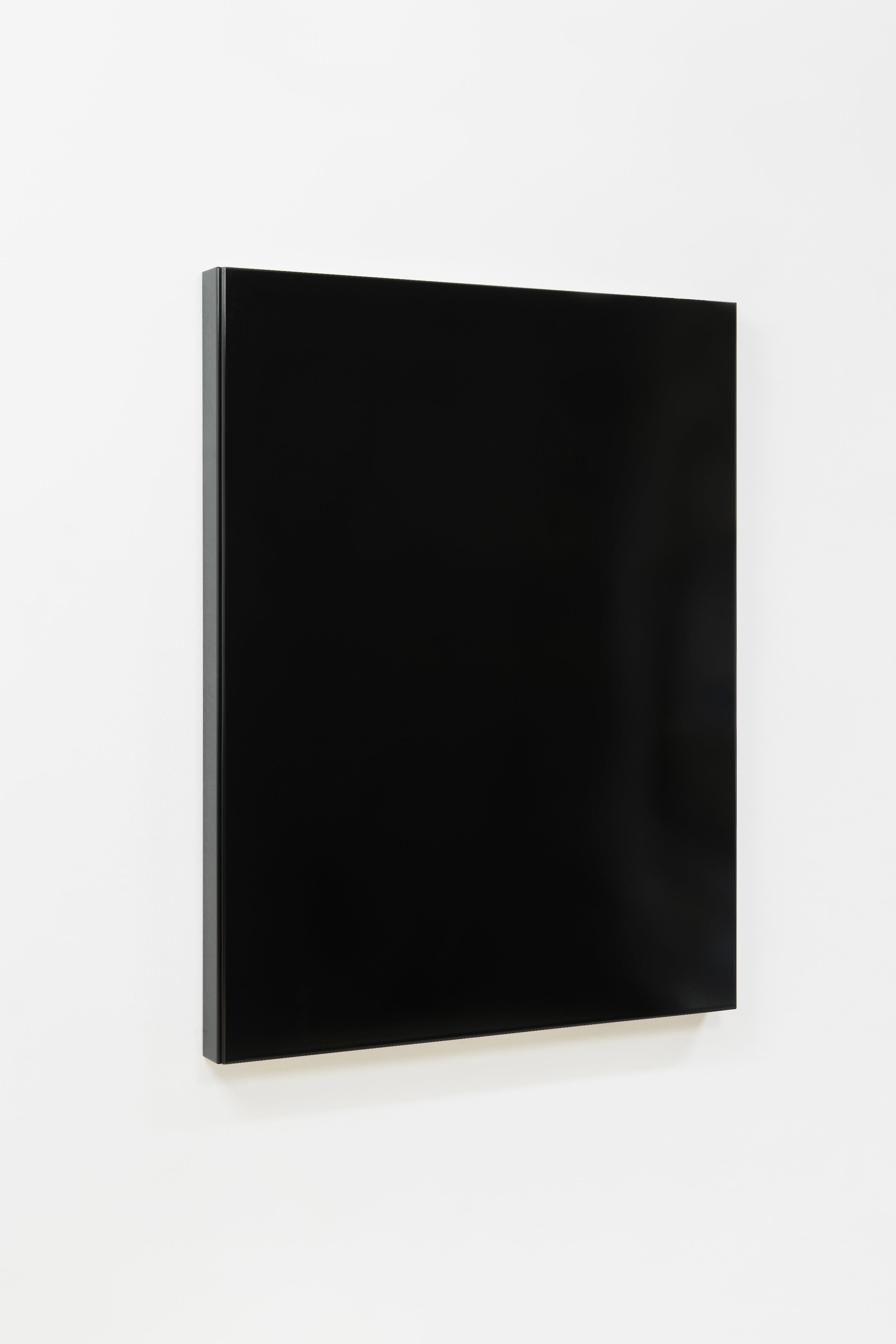Intro Anita Leisz

Anita Leisz, Untitled, 2022
Iron, enamel, aluminium, wood, screws
100 x 83,8 x 7 cm
Courtesy Laura Mangione Gallery, Turin
The visual language of Anita Leisz’s sculptures, objects, and installations oscillates between echoes of minimal art, non-figurative painting, and industrialism. Leisz relies on rather restrained materials, with cold colors and forms. Materials used in the construction industry, such as various types of fiberboard, metals, and sheet metals are prepared in several steps and placed in relation to spaces and viewers. The specific ways in which Leisz processes and shapes these industrial materials lead to remarkable results with great presence and sensitivity, standing for the high quality of her work and raising questions about art production and reception today.
Anita Leisz always connects her artistic works with the places where they are presented and has a specific intervention in these places in mind. Her exhibitions are dramatic installations that tie the exterior and interior of a space together inseparably with and through art; object and space thus lend each other significance. By using this strategy of appropriation, Leisz resists standardized and uniform reception. The artist offers her audience precise and immediate settings representing different options for working with a given space, making this transformability the marker of her practice. In keeping with this program, the artist approaches the venue of her new solo exhibition with precisely conceived artworks — very conscious artistic positions that challenge perception and invite us to question what is visible and what is not. Leisz here deliberately avoids any kind of narrative point of reference, drawing our attention completely to the relationship between object, space, and recipient.
The materials the artist uses here are taken from her own studio or from handicraft businesses she works with. This kind of recycling and scenographic reworking of materials is a further level in the artist’s encounters with institutional infrastructures, while it also includes a certain pragmatism that enables her to avoid paying high prices for new metals.
These works are not in situ in any dogmatic sense, and they do not lose their status as works of art when they are taken from the locations where they were first exhibited or where they were made, as is often the case for conceptual and minimal art. The works rather develop within the relationship between in situ and ex situ. In each work and each work’s placement there is a significant starting point and linchpin, from which many important decisions for the exhibition concept were then developed.
In their combination with a specific building and its architecture, these objects together form a site-specific installation, while the individual fragments of this entire installation are still to be understood as autonomous works. In their interplay, they intend to undermine the setting of the exhibition galleries. A particular focus in this artistic intervention was to ask as to the hierarchies of the museum’s main hall and side gallery, whose relationship to each other already seems to be expressed in their names.
Anita Leisz’s work is characterized by this networking across all the elements of the institution, which is what makes an encounter with it so fascinating. At the same time the often fragile seeming and laboriously produced objects stand for a productive openness between painting and sculpture, in which these effectively fall into one, which adds a further interesting feature to her work, questioning the conditions of art in production and making an experience of a space tangible.
This exhibition project is one consequence of the artist winning the Styrian State Prize in Recognition of Fine Art in 2020. Anita Leisz’s exhibition is a new production. On the occasion of the exhibition, a publication with a text by Christian Egger is released at Westphalie, Vienna.
Anita Leisz (*1973 Leoben, lives in Vienna) studied at the Academy of Fine Arts, Vienna. Belvedere 21, Vienna; mumok – Museum moderner Kunst Stiftung Ludwig, Vienna; Kunstverein Ludwigsburg; Salzburger Kunstverein; and Secession, Vienna; among others. Her works have been shown at the Kunsthaus Bregenz; Haus der Kunst Munich; Kunstverein Nürnberg and Kunstverein Hamburg, among others. In 2019, she was awarded the Kapsch Contemporary Art Prize. The artist is represented by Galerie Meyer Kainer, Vienna; Norma Mangione, Turin; and Lars Friedrich, Berlin.
(1)
2022
Enamel, screws, divere material
375 x 45 x 362 cm
Courtesy Norma Mangione Gallery, Turin
(2)
Matte, 2022
Recycled Rubber
3723,5 x 265 x 2 cm
Courtesy Norma Mangione Gallery, Turin
(3)
2022
Iron, enamel, aluminum, wood, screws
100 x 83,8 x 57 cm
Courtesy Galerie Meyer Kainer, Vienna
(4)
2022
Iron, enamel, aluminum, wood, screws
100 x 82,2 x 5,6 cm
Courtesy Norma Mangione Gallery, Turin
(5)
2022 Iron, enamel, aluminum, wood, screws
100 x 83,8 x 4,7 cm
Courtesy Norma Mangione Gallery, Turin
(6)
2022
Iron, enamel, gypsum fibre board, aluminum, wood, screws
78,3 x 63,3 x 5,7 cm
Courtesy Norma Mangione Gallery, Turin